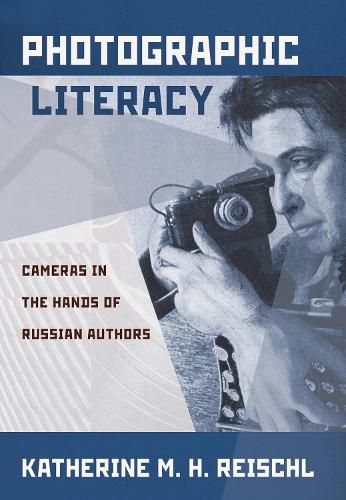Readings Newsletter
Become a Readings Member to make your shopping experience even easier.
Sign in or sign up for free!
You’re not far away from qualifying for FREE standard shipping within Australia
You’ve qualified for FREE standard shipping within Australia
The cart is loading…






Photography, introduced to Russia in 1839, was nothing short of a sensation. Its rapid proliferation challenged the other arts, including painting and literature, as well as the very integrity of the self. If Leo Tolstoy and Fyodor Dostoevsky greeted the camera with skepticism in the nineteenth century, numerous twentieth-century authors welcomed it with a warm embrace. As Katherine M. H. Reischl shows in Photographic Literacy, authors as varied as Leonid Andreev, Ilya Ehrenburg, and Alexander Solzhenitsyn picked up the camera and reshaped not only their writing practices but also the sphere of literacy itself.
For these authors, a single photograph or a photograph as illustration is never an endpoint; their authorial practices continually transform and animate the frozen moment. But just as authors used images to shape the reception of their work and selves, Russian photographers-including Sergei Prokudin-Gorsky and Alexander Rodchenko-used text to shape the reception of their visual work. From the diary to print, the literary word imbues that photographic moment with a personal life story, and frames and reframes it in the writing of history. In this primer on photographic literacy, Reischl argues for the central place that photography has played in the formation of the Russian literary imagination over the course of roughly seventy years. From image to text and back again, she traces the visual consciousness of modern Russian literature as captured through the lens of the Russian author-photographer.
$9.00 standard shipping within Australia
FREE standard shipping within Australia for orders over $100.00
Express & International shipping calculated at checkout
Photography, introduced to Russia in 1839, was nothing short of a sensation. Its rapid proliferation challenged the other arts, including painting and literature, as well as the very integrity of the self. If Leo Tolstoy and Fyodor Dostoevsky greeted the camera with skepticism in the nineteenth century, numerous twentieth-century authors welcomed it with a warm embrace. As Katherine M. H. Reischl shows in Photographic Literacy, authors as varied as Leonid Andreev, Ilya Ehrenburg, and Alexander Solzhenitsyn picked up the camera and reshaped not only their writing practices but also the sphere of literacy itself.
For these authors, a single photograph or a photograph as illustration is never an endpoint; their authorial practices continually transform and animate the frozen moment. But just as authors used images to shape the reception of their work and selves, Russian photographers-including Sergei Prokudin-Gorsky and Alexander Rodchenko-used text to shape the reception of their visual work. From the diary to print, the literary word imbues that photographic moment with a personal life story, and frames and reframes it in the writing of history. In this primer on photographic literacy, Reischl argues for the central place that photography has played in the formation of the Russian literary imagination over the course of roughly seventy years. From image to text and back again, she traces the visual consciousness of modern Russian literature as captured through the lens of the Russian author-photographer.